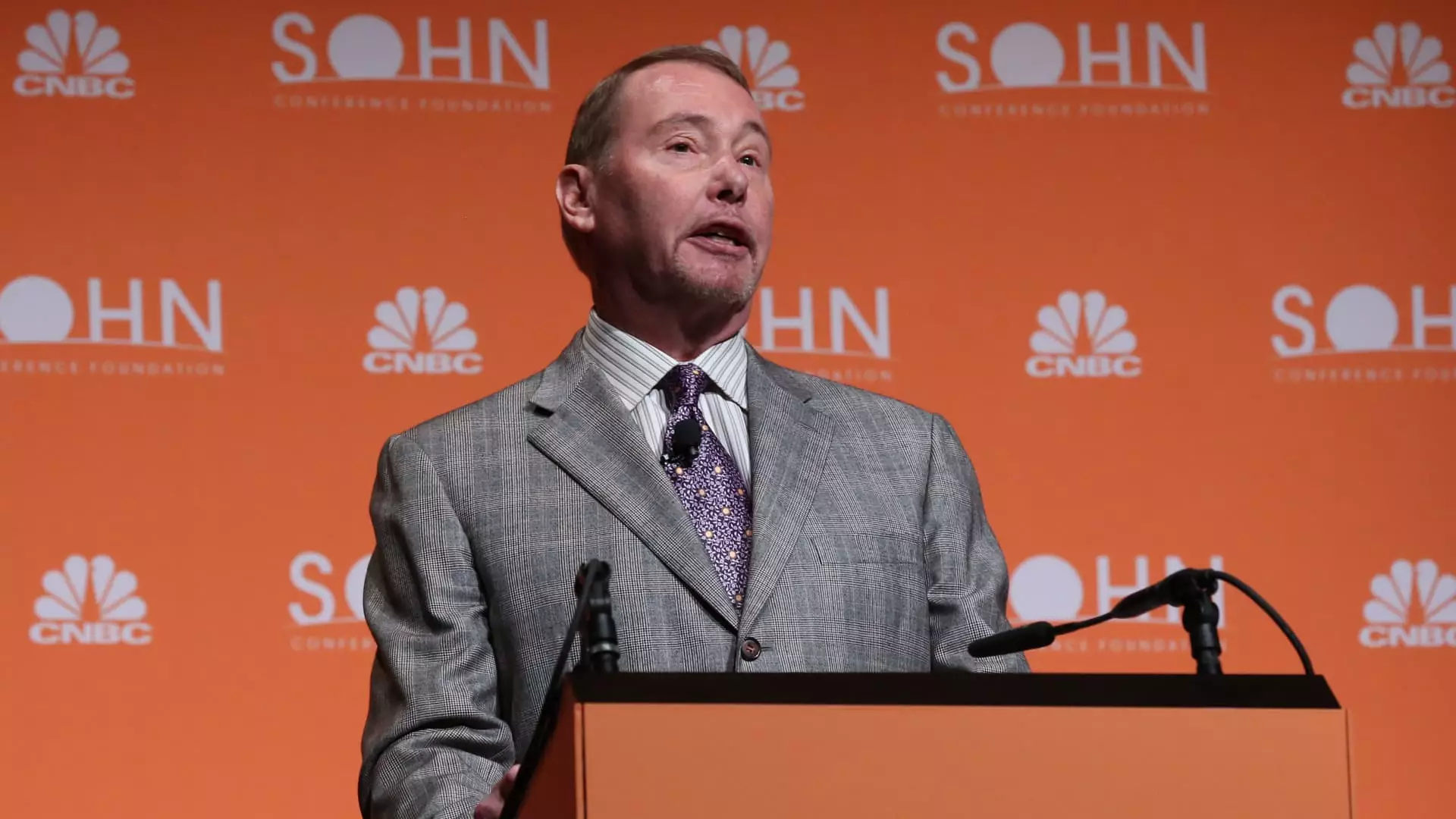Jeffrey Gundlach, the CEO of DoubleLine Capital, recently shared his insights on how a potential Republican majority in the House could lead to significant fluctuations in interest rates. With a governing trifecta under a President-elect Donald Trump, Gundlach anticipates that increased government spending may necessitate additional borrowing through Treasury issuance, which would likely apply upward pressure on bond yields. His predictions suggest that financial markets could face considerable volatility, particularly in the long end of the yield curve, dependent on how the Federal Reserve responds to these developments.
The State of Fiscal Health
As of late 2024, the fiscal landscape is troubling, characterized by a staggering budget deficit that exceeded $1.8 trillion. This figure is alarming, particularly because a significant portion—over $1.1 trillion—has been allocated solely for servicing the enormous $36 trillion U.S. national debt. The ongoing fiscal challenges compel investors and economists alike to scrutinize government actions and their long-term implications for the economy. Gundlach’s observations underscore a crucial concern: without a strategic rethinking of fiscal policy, increasing borrowing could further exacerbate the national debt crisis.
The political dynamics following the recent elections could have lasting effects on economic policy. Gundlach pointed out that tax cuts, particularly those favored by the Trump administration, could mean even larger deficits, further complicating an already fragile economic situation. The expectation of additional fiscal stimulus, which generally stimulates economic growth, creates a paradox where increased spending could, unfortunately, lead to a higher national debt burden. The question remains: can the government effectively stimulate growth without jeopardizing fiscal sustainability?
The Federal Reserve’s role in this scenario is vital. After cutting interest rates recently, the central bank is expected to continue this trend, with traders forecasting additional reductions in the near future. However, Gundlach’s warnings call into question how a Republican-controlled House—and the resulting fiscal policy changes—might alter the Fed’s strategy moving forward. The central bank may have to engage in a delicate balancing act, navigating between stimulating the economy and addressing inflationary pressures arising from increased government borrowing.
Interestingly, while Gundlach has previously indicated concerns about a potential recession, he suggests that the election outcomes might actually mitigate this risk, at least in the near term. He argues that an ambitious fiscal agenda, articulated clearly by Trump, could fuel economic expansion in a way that lowers recession probabilities. Still, this view requires careful examination; the complexities of economic cycles mean that while immediate indications may lean positive, longer-term consequences should not be overlooked.
The interplay between political control, fiscal policy, and interest rates is a multifaceted issue that requires ongoing scrutiny. As stakeholders watch economic indicators, the potential consequences of political decisions will reverberate throughout financial markets, influencing economic stability and growth prospects in the future. The coming months will be critical in determining how effective these policies will be in fostering a sound economic environment.

